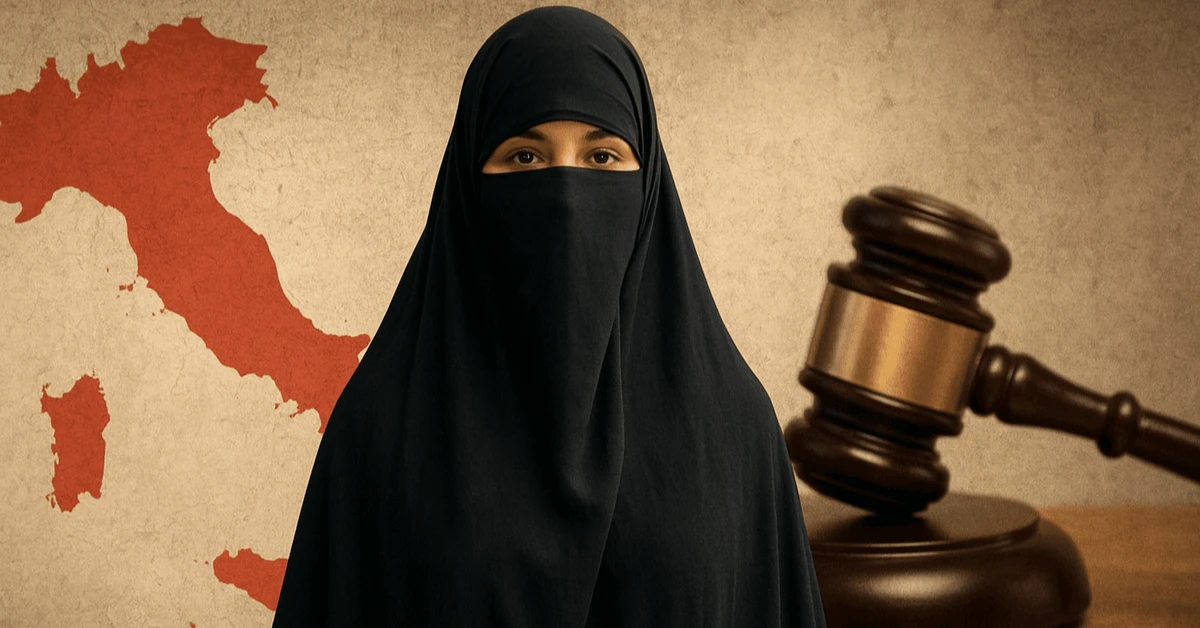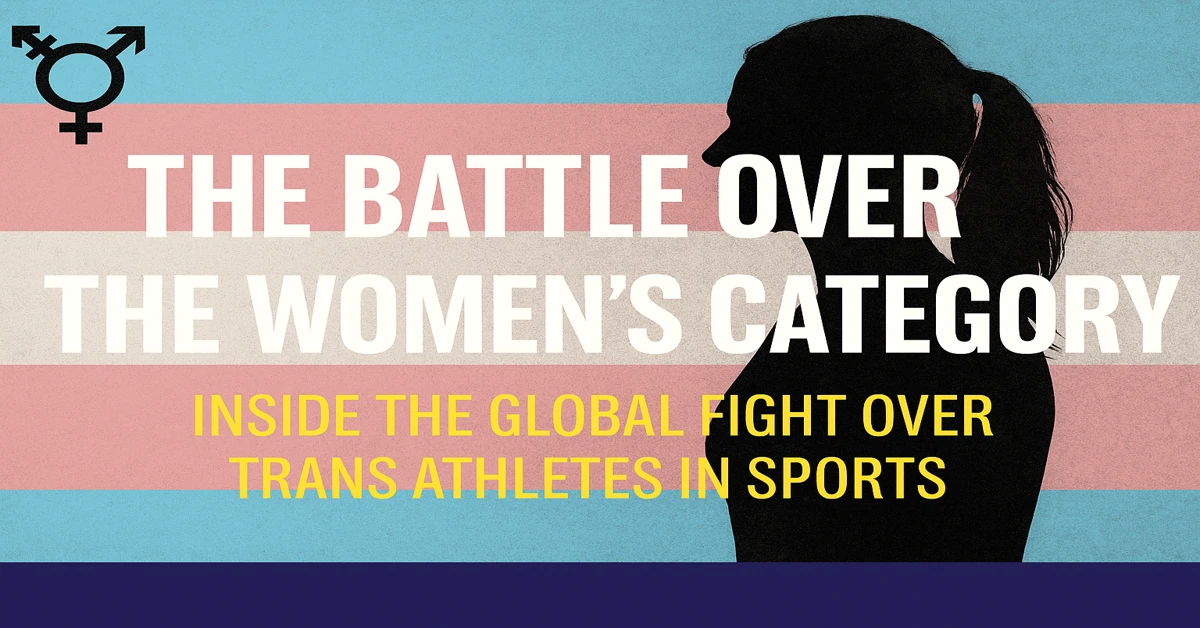Last Updated: October 10, 2025
You Could Be Fined €3,000 Over Your Burqa — Italy’s New Bill Explained

Italy’s controversial new proposal has reignited the debate over religious freedom and national identity — a fine of up to €3,000 could soon be imposed on women wearing the burqa or niqab in public spaces.
The Bill That Shook Italy
In early October 2025, Italy’s ruling party, Brothers of Italy (Fratelli d’Italia), introduced a sweeping proposal banning Islamic face coverings in public places. The draft law, supported by Prime Minister Giorgia Meloni, cites “security and transparency” as its key motives. The proposal aims to restrict the use of full-face veils such as burqas and niqabs in government buildings, universities, public transport, and other public venues.
Under the new bill, violators could face fines ranging from €300 to €3,000. The legislation also expands surveillance over foreign-funded religious organizations — part of a wider plan to counter what the government calls “Islamic separatism.”
Is It Legal? What Italy’s Constitution Says
Article 19 of the Italian Constitution guarantees the right to religious freedom. However, lawmakers argue that the measure falls under “public safety” provisions. The Italian Council of State is expected to debate whether this restriction infringes upon constitutional protections or aligns with existing anti-terror laws.
This legal balancing act is not new — France, Belgium, and Denmark have already implemented similar bans, each justified under public security grounds. Yet, Italy’s proposed penalties are among the toughest in the European Union.
How Common Are Burqa Bans in Europe?
Across Europe, the landscape varies widely:
- France: Implemented a full public ban in 2011 with fines up to €150.
- Belgium: Similar law in 2011; violators face fines and potential jail time.
- Austria: Enforced ban in 2017 with moderate fines and social service penalties.
- Denmark: Banned face coverings in 2018; fines start at 1,000 kroner (€135).
- Netherlands: Partial ban in 2019 for schools, hospitals, and public transport.
- Switzerland: Approved a nationwide burqa ban via referendum in 2021.
How Italy Reached This Point
Discussions on banning full-face veils in Italy began as far back as 2010, but political fragmentation and resistance from moderate lawmakers stalled progress. With Giorgia Meloni’s nationalist government gaining power, the idea resurfaced as part of a broader cultural and identity-focused agenda. Critics argue that this move caters more to populist sentiments than to genuine security concerns.
Public Reaction: A Divided Nation
Opinion polls show that more than 60 percent of Italians support restrictions on full-face coverings, though many oppose complete bans. Muslim organizations and civil rights groups, however, call it a violation of personal liberty and religious expression. Some women’s rights advocates also argue that penalizing women for their clothing choices contradicts gender equality principles.
Religious and Global Backlash
The proposal has sparked strong reactions from across the Muslim world. Turkey and Qatar issued statements expressing concern about Europe’s growing intolerance toward Islamic practices. The Organisation of Islamic Cooperation (OIC) urged Italy to reconsider, warning that such policies deepen social divides and fuel Islamophobia.
What Happens Next
The bill still needs to pass through both chambers of the Italian Parliament. If approved, enforcement could begin as early as mid-2026. Local police would be authorized to issue fines, while judges could impose higher penalties for repeat offenders. Civil rights groups plan to challenge the bill in Italy’s Constitutional Court and possibly at the European Court of Human Rights.
Comparison With Global Trends
While Europe sees a growing wave of face-covering bans, other regions are taking more inclusive approaches. In Canada and the United States, religious freedom laws protect the right to wear veils in public spaces. In contrast, countries like China have implemented far stricter regional restrictions, particularly in Xinjiang. Italy’s move, therefore, places it within Europe’s stricter bloc but still less severe than some Asian enforcement models.
Beyond the Burqa: A Debate on Freedom
At its core, the Italian proposal is less about clothing and more about identity. Supporters see it as defending European values of transparency and secularism. Opponents view it as another chapter in the ongoing clash between tradition and modernity, freedom and control, faith and fear. What happens in Italy could influence similar debates in Spain, Germany, and even parts of Eastern Europe in the coming years.
FAQs
1. Has the burqa ban become law yet?
No, it is still a proposal and must be debated and approved by the Italian Parliament before taking effect.
2. What is the fine amount under the proposed law?
The fine ranges from €300 to €3,000 depending on the circumstances and frequency of violation.
3. Does this ban apply only to Muslim women?
Officially, the law applies to all face coverings in public spaces, but in practice it primarily targets Islamic attire such as burqas and niqabs.
4. Are other countries considering similar bans?
Yes, several European countries have already enforced similar restrictions, and others like Germany and Spain are discussing limited measures.
5. What penalties could Italy face internationally?
Human rights organizations could challenge the law in European courts, arguing that it violates religious freedom and anti-discrimination norms.
You May Also Like:

How Your Smart TV Spies on You More Than Your Smartphone...

The Battle Over the Women’s Category: Inside the Global Fight Over Trans Athletes in Sports...

Disappearing Digital Payments in Pakistan: Why Transfer Amounts Get Lost Between Banks, Wallets and ...

How Pakistan’s Surplus Electricity Could Spark a Surge in AI Data Centres and Bitcoin-Mining Start...

Engineer Muhammad Ali Mirza Arrested Under 295-C — Arrest, Charges, Transfer and LHC Bail Explaine...

This AI Just Took Over a Job You Thought Was Safe — Is Yours Next?...

Texas Flood Tragedy: Doctor Fired Over Heartless Comment, Pat Green’s Family Lost & 7 Shocking Sto...
